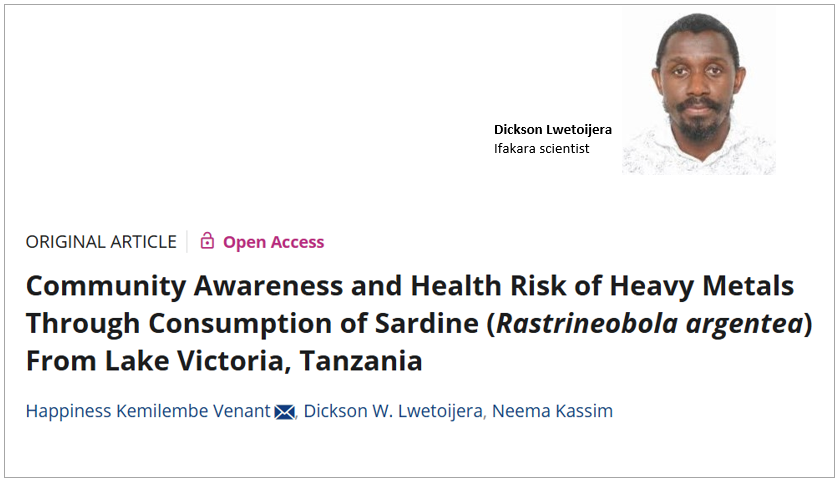
SAFETY: Study confirms lake victoria sardines safe to eat, calls for better handling and monitoring

A recent study in Lake Victoria, Tanzania has confirmed that sardines—a staple food and vital source of income for local communities—are generally safe for consumption. However, the research emphasizes the need for improved handling practices, stronger public awareness, and continuous monitoring to maintain this safety and protect long-term community health.
Low awareness of heavy metal risks
Findings published in the Food Science & Nutrition journal revealed that overall awareness of heavy metals, such as mercury, cadmium, and lead, is low—especially among individuals with lower levels of education.
“Few participants were aware of heavy metal contamination in sardines,” the study reports. Those who were aware recognized potential health risks, including vomiting, kidney failure, and other complications. Contamination was most often associated with industrial and mining activities near the lake.
Laboratory tests confirm safety
Laboratory analysis of 279 sardine samples collected from Mwanza, Kagera, and Mara confirmed that cadmium and lead levels were within safe limits. This means that long-term consumption does not pose a significant threat to human health. Hazard and cancer risk assessments were also found to be below critical thresholds.
Experts caution, however, that while the current levels are safe, these metals are highly toxic over time, underscoring the importance of proper handling and monitoring.
Education and monitoring are key
The study highlights the importance of ongoing education on safe fish handling, improved coordination among authorities, and continuous monitoring of contaminants. While sardines from Lake Victoria are safe to eat, cleaner drying practices and more informed communities are essential to ensuring they remain a reliable, nutritious food source.
“Local authorities and food safety agencies should promote safer fish drying methods, such as the adoption of raised drying racks, to reduce contamination risks from soil, dust, and other environmental sources,” the authors recommend.
“Regular community education and capacity-building initiatives on hygienic fish handling are vital to empower stakeholders to protect consumer health. Continuous monitoring of heavy metal concentrations in sardines is essential to enable timely interventions,” the authors emphasized.
Ifakara scientist contributes to the study
Ifakara Health Institute’s seasoned research scientist, Dickson Lwetoijera, contributed to the study through conceptualization, data curation, methodology, validation, visualization, and writing (original draft, review, and editing). He also supported formal analysis, investigation, and supervision. He worked alongside colleagues Happiness Kemilembe Venant from NIMR and Neema Kassim from NM-AIST.
>> Read the publication here.
